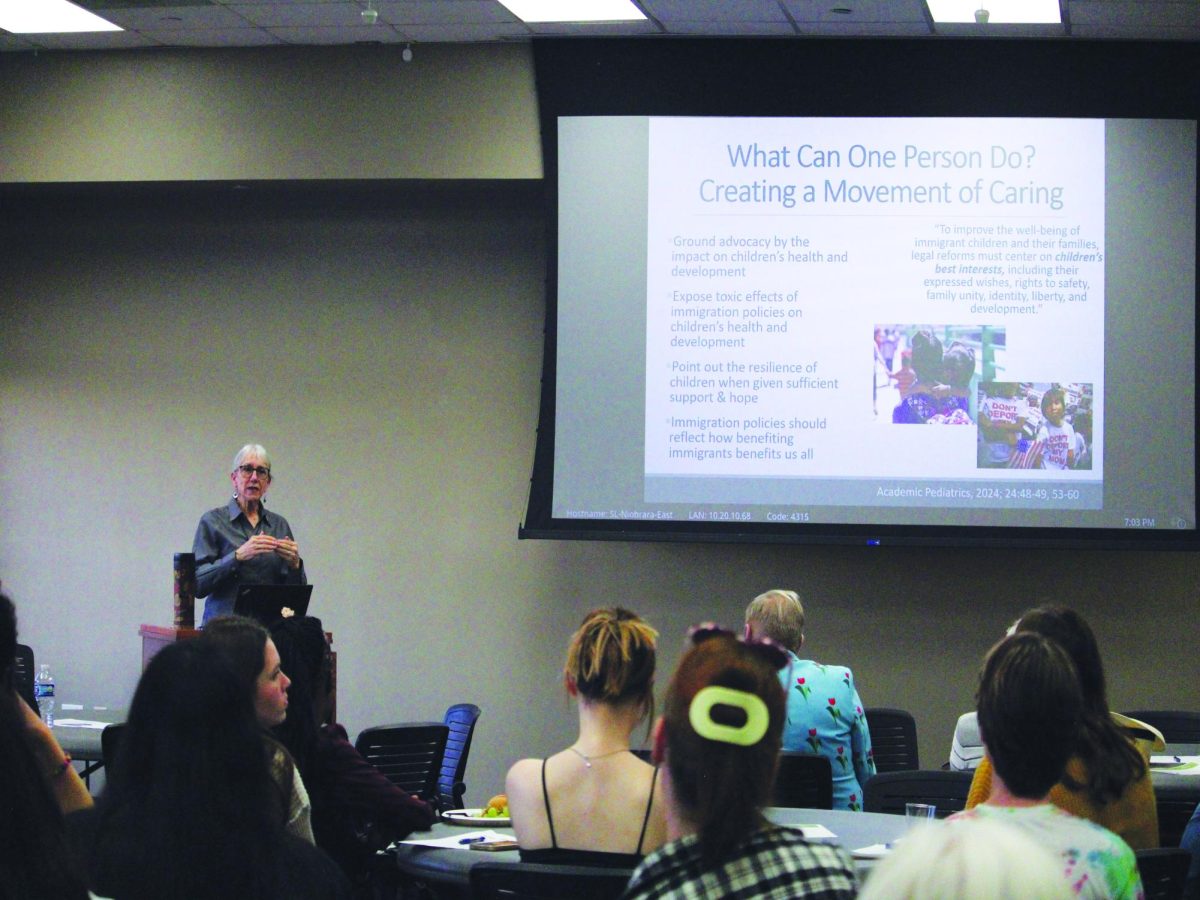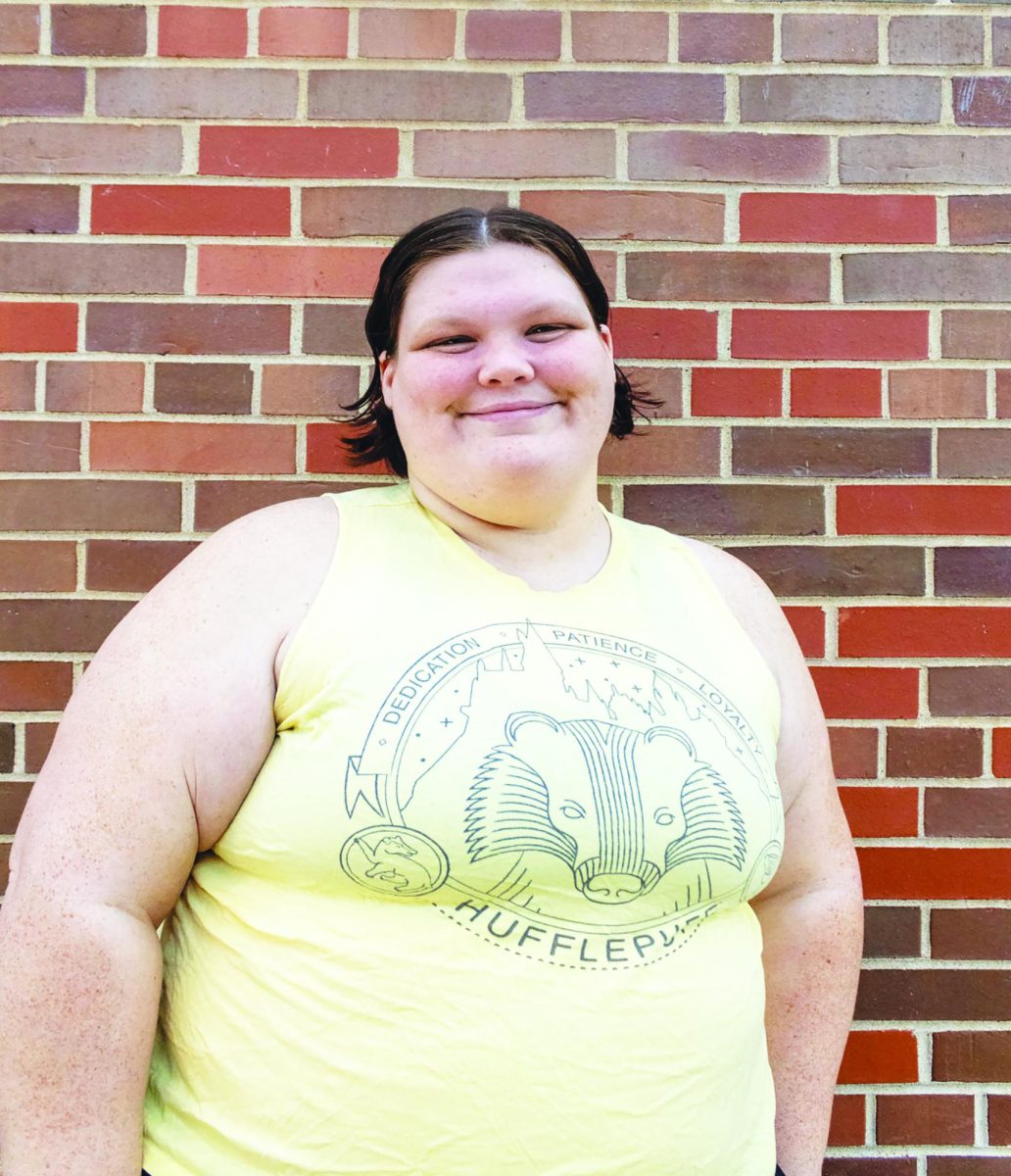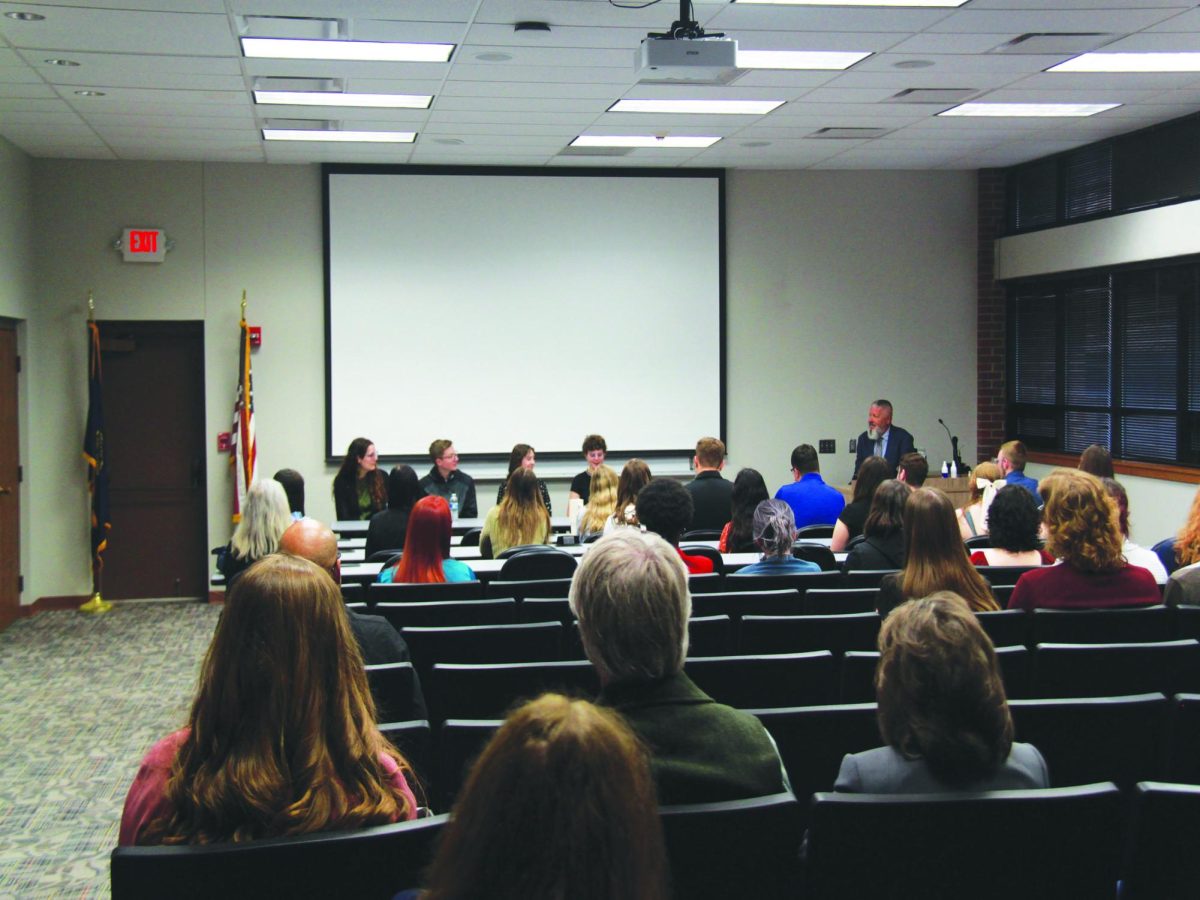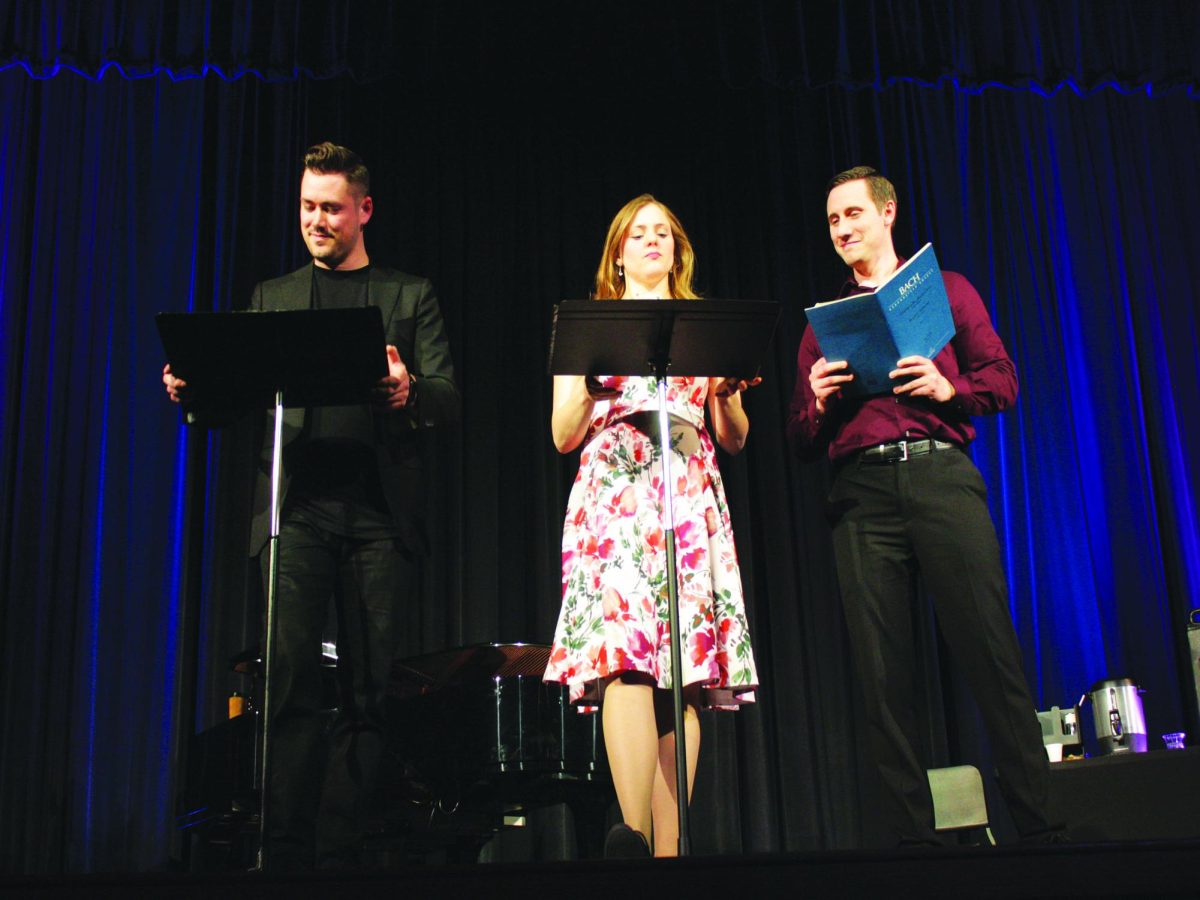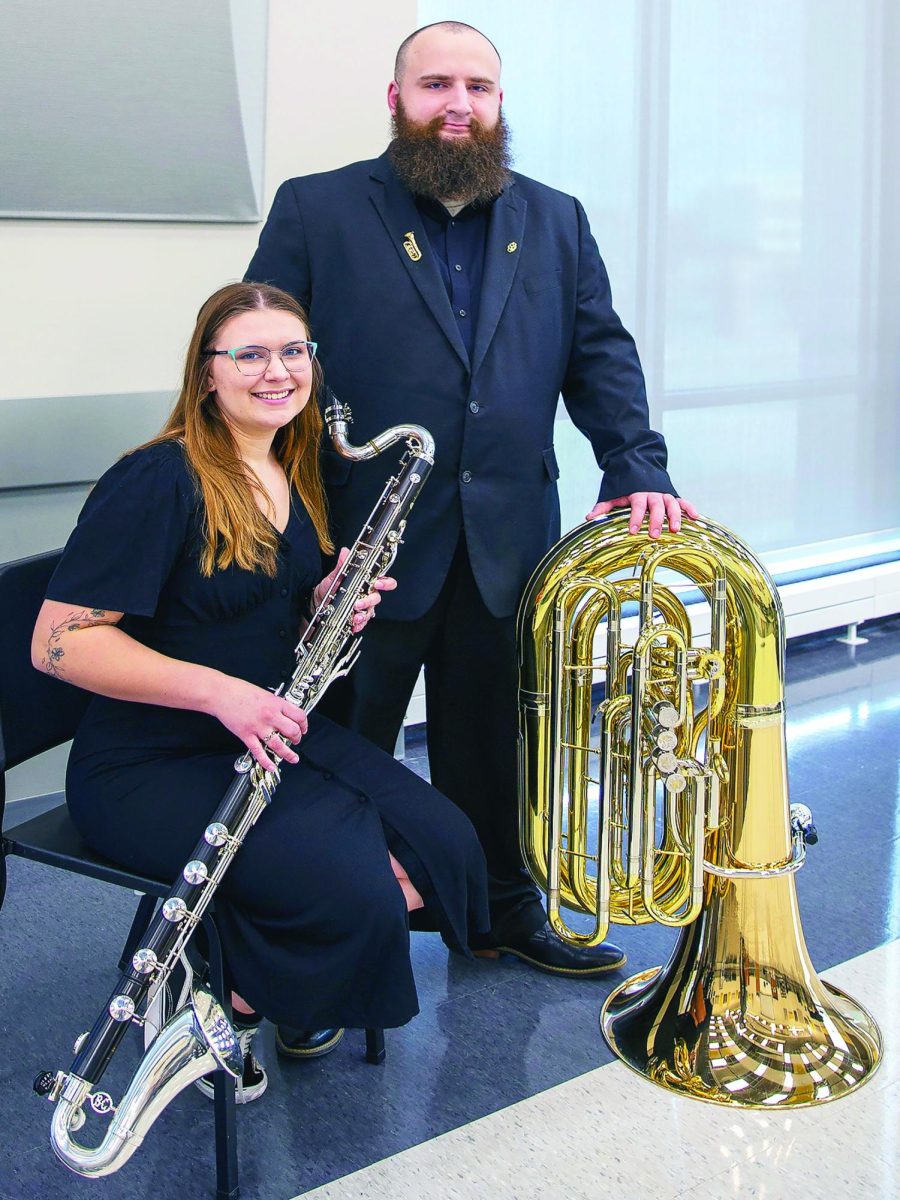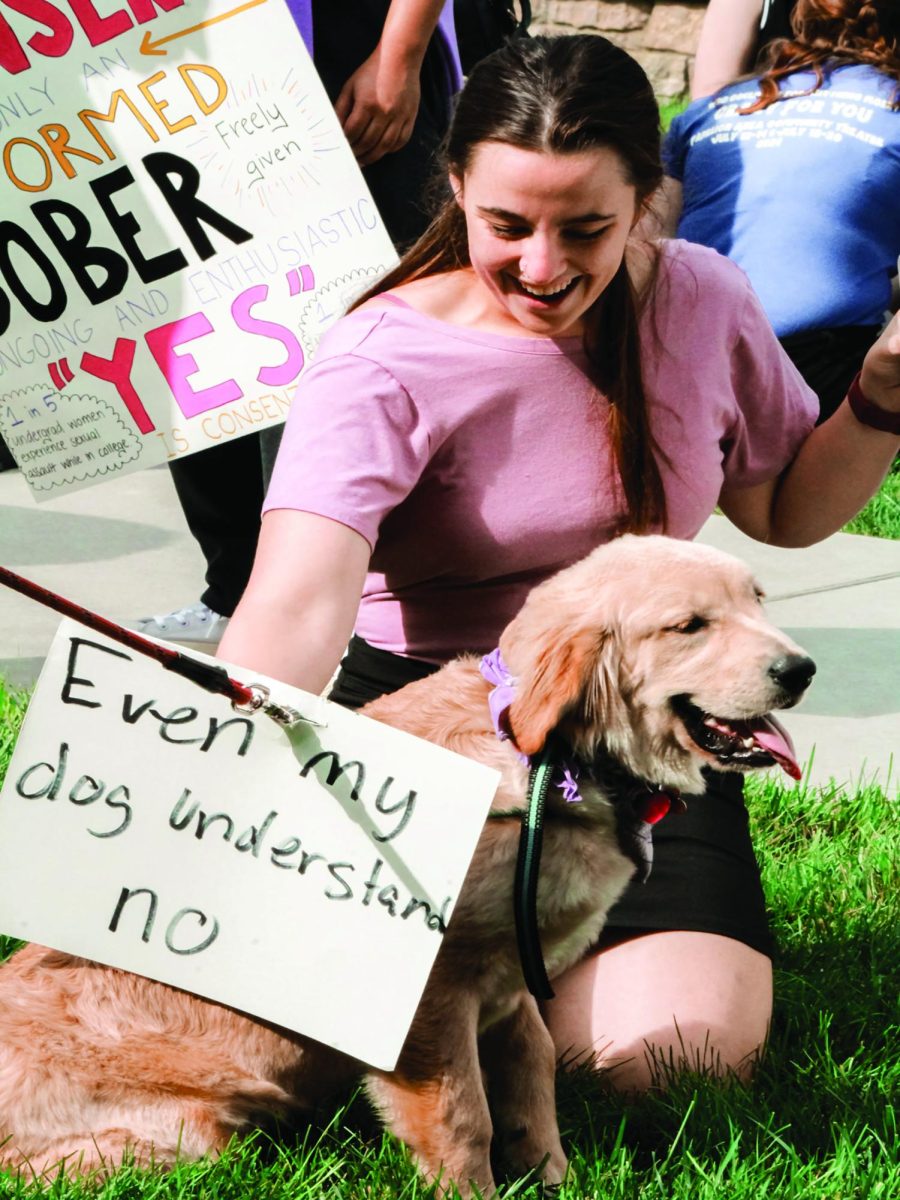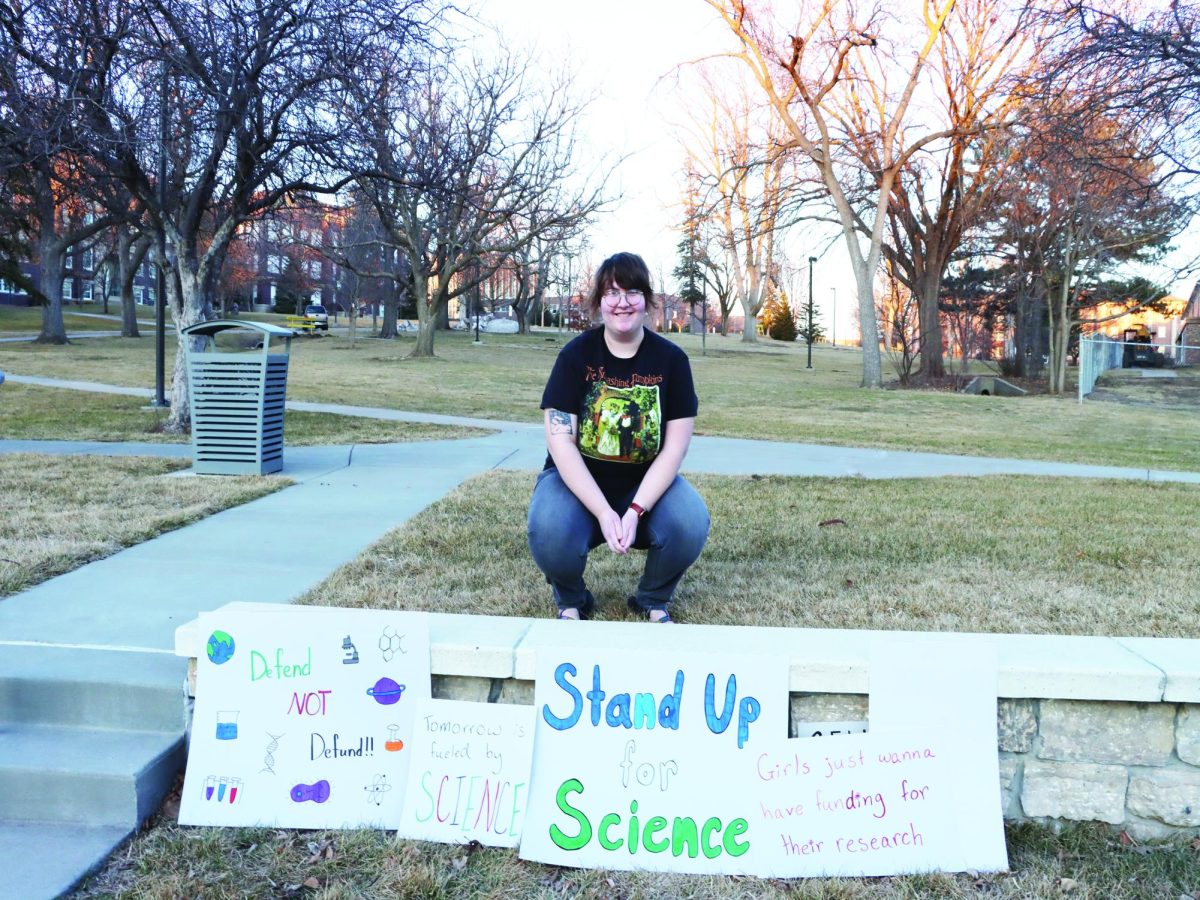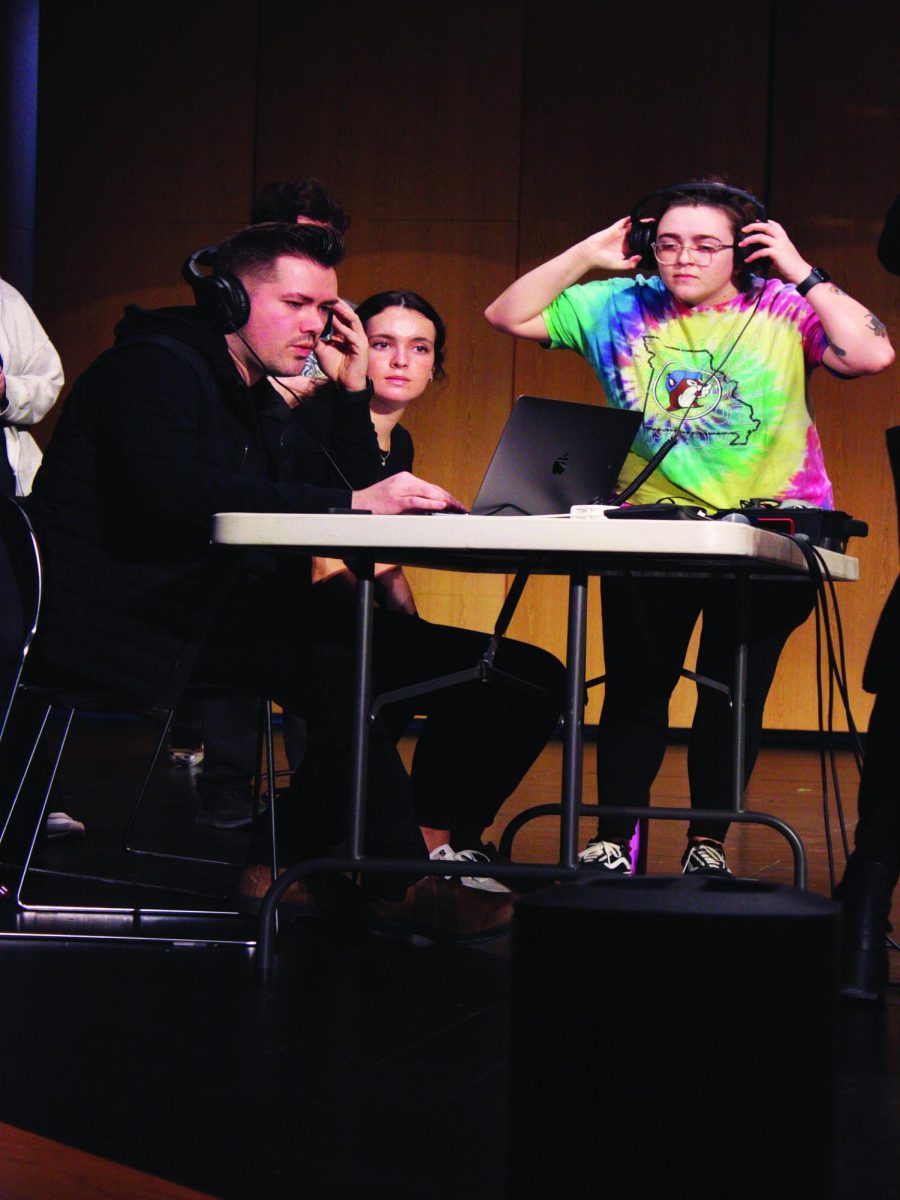Many students and Wayne community members are dissatisfied with Wayne State College’s response to allegations of sexual assault of a student on campus back in April, which has resulted in the student withdrawing from WSC, a campus protest, a pause in the school investigation and a stalemate between campus officials and the community.
In April of the 2024 spring semester, a 20-year-old WSC student filed a report with both the school and the Wayne Police that she had been sexually assaulted by two male classmates on campus after a gathering in Anderson Hall. The student alleged she had been attacked by the men after she lost consciousness from a drugged shot one of the men offered her and another student.
The student contacted police from the hospital when she awoke the next day, covered in bruises, with a hat one of the men had been wearing the night before in her dorm room.
As of writing, one of the accused, a 20-year-old, has withdrawn from WSC and is currently jailed with bail at $250,000. The other, a 19-year-old, is free after posting 10% of his $100,000 bail and is still enrolled in classes at WSC.
This has led to outrage and concern amongst many in the community, who fear the school’s response will set a dangerous precedent.
WSC has been very reserved with what they share about this investigation publicly, and for good reason.
According to the Department of Education, WSC must comply with Title IX, a law that prohibits sex-based discrimination to ensure a safer and more equitable environment, as an educational institution that receives federal financial assistance.
Title IX affects everything from athletics to employment, and in this case, sexual harassment.
Improper handling of a Title IX case could result in the college losing government funding, which, according to the Office of Federal Student Aid, provides for the majority of student aid opportunities.
WSC is also kept from sharing student information publicly by the Family and Educational Rights and Privacy Act (FERPA), which serves to uphold parents’ rights and prevent schools from sharing students’ private information.
From a legal standpoint, it is a wise tactical decision not to give comment on ongoing investigations involving current students, but the silence is alarming to community members who learned of the arrests via word-of-mouth and from news stations outside Wayne.
While a typical Title IX investigation at WSC involves interviews with all involved parties, a collection of written and physical evidence and a review of school policy over a 60-day period, this case could be slipping beyond the college’s jurisdiction.
In an interview with Norfolk Daily News, the 20-year-old victim said WSC’s continued admission of one of the accused students on campus and into in-person classes greatly contributed to her decision to drop out before the 2024-25 school year. The student also requested WSC’s Title IX investigation on her behalf be paused on the advice of her lawyer.
Since two of the three involved parties have left WSC, the college’s ability to investigate and enforce ruling has been significantly limited.
WSC officials have been steadfast in their adherence to Title IX regulations and regulations, saying in an official statement, “we are fully committed to upholding our established procedures for responding to Title IX reports and providing support services to our students”.
However, while WSC works diligently to adhere to federal regulations, the public silence and pause in the school investigation has left much of the Wayne community feeling dissatisfied and frustrated.
“It makes it feel like the school was aware of an issue and instead of trying to prevent something from happening, they waited for another case,” Amber Frank, a student who attended the protest in support of the alleged victim, said.
At the campus protest, the victim spoke with KTIV about the responses she had received from the school while she was still enrolled. While she was offered counseling, academic support and no-contact orders with her alleged attackers, she remained unsatisfied with the policy at the heart of the investigation.
“They just kept quoting the Title IX policy in every email,” the victim said. “If Title IX is doing everything that they can, then something in this policy is flawed severely.”
By allowing a student formally accused of sexual assault to continue their education on campus and by not making incoming students aware of the situation, some community members feel the school is risking the welfare of many to protect the rights of a few.
“They have a pattern,” the victim said to Norfolk Daily News, in reference to the two men accused of assault. “It’s only a matter of time before the same thing happens to other women.”
Other students have commented on the lack of information given at the beginning of the semester.
“This does not seem like [WSC] felt worried about other students who are likely to get victimized in situations like this,” Frank said. “The school’s response does not seem active and understanding, it seems more like they are trying to sweep the incident under the rug.”
WSC acknowledged the frustration and confusion surrounding its response in official statements given to both KTIV and the Norfolk Daily News, both of which cited the inherent complexities of Title IX policies and FERPA restrictions on the disclosure of student information.
“The Title IX process required by federal law can be complex and frustrating for those involved because it is different from other conduct processes,” the Associate VP for Student Affairs and Title IX Coordinator, Alicia Dorcey McIntosh, said. “Although we cannot change the federal regulations, we continue to try to find new and better ways to communicate and explain the Title IX process to students.”

